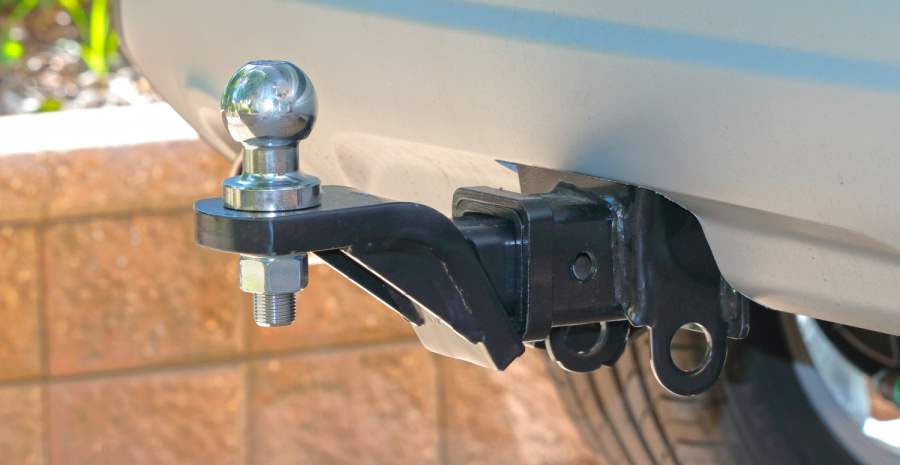Towing a big trailer requires a heavy-duty hitch. If you’re new to towing, you might be familiar with the terms’ 5th wheel hitch’ and ‘gooseneck hitch,’ but which one do you need? Both styles relocate the factory-installed hitch from below the bumper to the truck bed over the rear axle, so your truck can carry heavier loads. They are used for towing heavy trailers but work differently for essential reasons.
What are Gooseneck Hitches?
Gooseneck hitches connect to trailers via a hitch ball and is often mounted under the truck bed. These hitches are rated for up to 30,000 lbs. or more. They are ideal for towing flatbed equipment haulers, livestock trailers, and horse trailers.
What are 5th Wheel Hitches?
Using metal jaws or a locking bar, 5th wheel hitches connect to a trailer’s kingpin. A pivoting head plate allows smooth towing and is available in capacities up to 30,000 lbs. They are typically used for large campers and RV trailers.
Comparing the Two Hitch Styles
Both hitches are installed in the truck bed and can handle up to 30,000 lbs. However, their coupling mechanisms, impact on the truck bed, cost, and typical trailer types differ significantly.
Similarities
Both hitch styles are installed in the truck bed and tow up to 30,000 lbs.
Differences
A gooseneck hitch uses a ball and coupler connection, while a 5th wheel hitch features a jaw and kingpin connection. A 5th wheel hitch is a bit bulkier but has the option to be removed, whereas a gooseneck hitch is less invasive in the truck bed. A gooseneck hitch is typically less expensive, but a 5th wheel hitch offers enhanced stability.
They offer solutions for different needs: gooseneck hitches are better suited for agricultural towing, and 5th wheel hitches are better for recreational towing.
The Pros and Cons of Gooseneck and 5th Wheel Hitches
Gooseneck Hitch Pros and Cons:
- Pros: Minimally invasive, lightweight ball, simple mechanism, convertible to 5th wheel, ideal for agriculture and commercial use.
- Cons: Requires drilling, less stable for tall trailers, noisier.
5th Wheel Hitch Pros and Cons:
- Pros: Smoother, more stable towing, variety in weight capacities, great for RVs, convertible to gooseneck.
- Cons: Heavy and difficult to move, more expensive, permanent bed rails.
Advantages of Each Hitch Type
Gooseneck Hitches are less invasive, simple and solid connections, ideal for heavy-duty farm trailers and flatbeds.
5th Wheel Hitches offer smoother, quieter towing, ideal for RVs and campers, with a broader range of weight capacities and slider options for short-bed trucks.
Which Hitch is Right for Me?
Choosing between a 5th wheel and a gooseneck hitch depends on your towing needs. For recreational towing, the 5th wheel hitch is preferable for its smooth and stable ride. For farming and commercial purposes, a gooseneck hitch is ideal for its less invasive design. Consider your trailer type and priorities based on each hitch’s advantages and limitations to make an informed decision.
Gooseneck and 5th wheel Hitches from Calgary Hitch Shop
Whether you’re looking for a gooseneck hitch for commercial towing or a 5th wheel hitch to do more camping, the team at Calgary Hitch Shop can help you find the best quality hitch at the best price. We stock all the major manufacturers and can offer our expert advice for your next hitch to offer the towing stability and capacity you need.
For the largest inventory of gooseneck and 5th wheel hitches, Calgary Hitch Shop can help you find the best solution for all your towing needs.


